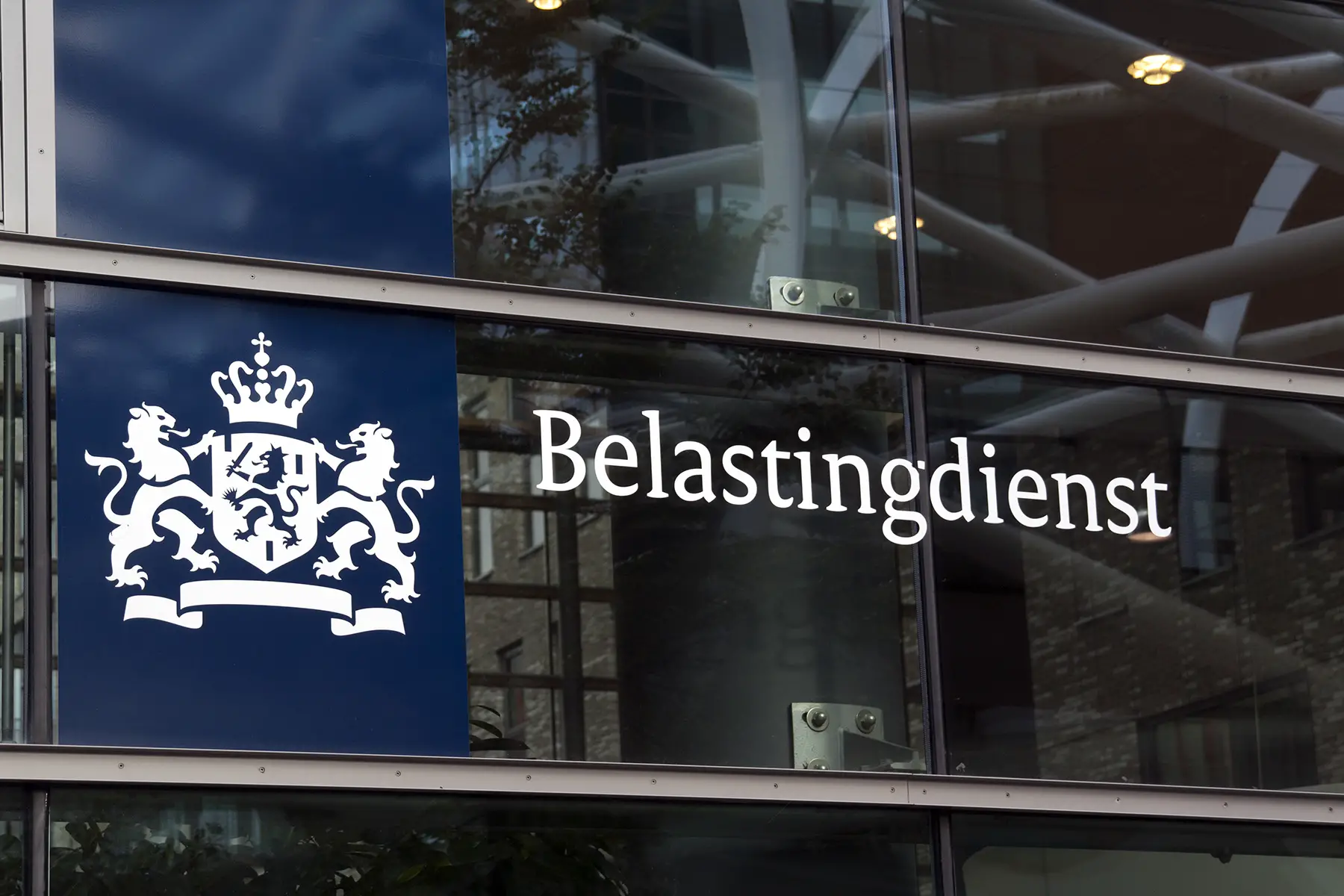In the Netherlands, it is relatively easy to become a freelancer, essentially the simplest way to start your own business. It is known as a ZZP’er (zelfstandige zonder personeel), which translates directly to an independent without staff. You don’t need any startup capital or even a business plan. There are also many financial advantages to becoming a freelancer, especially the tax breaks (ondernemersaftrek).
If it is your dream to work for yourself in the Netherlands, this article can guide you through the process by exploring the following:
- The difference between starting a business and becoming a ZZP’er
- Who can become a freelancer in the Netherlands?
- How to register a new business in the Netherlands
- Administrative and financial aspects of freelancing in the Netherlands
- Earning a secondary income from freelancing
- Finding office space when freelancing
- Finding work when freelancing in the Netherlands
- Support, advice, and training for freelancers
- Useful resources
Xolo
Xolo is an all-in-one service tailored for expat freelancers in the Netherlands. Their team of expert accountants and digital business management tools support freelancers in English so they feel secure when setting up and running a business. Sign up for Xolo to take care of your invoicing, expenses, and taxes easily.
The difference between starting a business and becoming a ZZP’er
The Dutch process of becoming a ZZP’er is straightforward and easier than in many other countries. In 2017, there were over a million freelancers, and in 2020, the country reported the highest number of freelancers in the EU, around 17.2% of the population. There is no real difference between starting a business and becoming a ZZP’er in the Netherlands. The process is almost the same, but the legal business structures may differ.
As a ZZP’er, you will most likely start a business as an eenmanszaak or besloten vennootschap (BV). The first is a sole proprietorship, and the second is a private limited company, which requires more financial and administrative resources. Freelancers who want to collaborate on projects may choose a general partnership or vennootschap onder firma (VOF).

There are several benefits to becoming a freelancer. For instance, you can choose your projects and collaborators, and set your hours. As an employee, you typically don’t have that freedom. In addition, apart from substantial tax breaks, you could pay less tax while establishing your business, as only your profit is taxed.
However, there are some downsides to freelancing. For example, you won’t get bonuses, sick leave, or vacation days, and you’ll have to arrange your own pension. In addition, you will not be able to apply for the 30% ruling, depriving you of the loophole offered by starting other forms of businesses.
Who can become a freelancer in the Netherlands?
Anyone who holds a Dutch residence permit can start a business as a freelancer or ZZP’er in the Netherlands, as you are legally allowed to live and work in the country. Beyond that, you will need to register your business with the Dutch Chamber of Commerce (Kamer van Koophandel – KVK) and get a value-added (VAT) number from the Belastingdienst (the Dutch tax authority). VAT is called BTW or belasting toegevoegde waarde in Dutch.
However, if you are from another EU country, you can apply for Dutch residency once you move to the country. Only then can you register to become a ZZP’er. Notably, your nationality does not matter as long as you have a Dutch residence permit.
There are some instances where you will also need a license, or to adhere to particular laws and regulations governing specific industries. For example, if you deal with imports and exports or work in hospitality (e.g., café, hotel, restaurant).
How to obtain a Dutch residence permit
There are several ways to obtain a Dutch residence permit, such as:
- The Dutch American Friendship Treaty
- Being in a relationship with an EU resident
- Dual citizenship
- Being an EU or EEU citizen
The Dutch startup visa
If you are from outside the EU, EEA, or Switzerland and do not hold a Dutch residence permit, another option is to apply for a startup visa to start a business in the Netherlands. This visa costs €349 and is valid for a year. However, you must show that your company will help the Dutch economy grow in your business plan.
The application requirements for this visa can vary. However, there are five main conditions for applying, namely:
- You must collaborate with an expert facilitator who can guide you through the process of being a startup.
- Your product or service must be innovative.
- You need to have a detailed business plan.
- The owner of the company and the facilitator must sign up with the KVK.
- You must have enough capital to live in the Netherlands and operate your business without any government assistance.
How to register a new business in the Netherlands
Fortunately, it only costs €75 to register a new company or organization in the Dutch Business Register (Handelsregister). If you already have a Dutch residence permit, you can do this right away.

As an EU, EEA, or Swiss citizen, you will first need to get your Dutch residency by applying for a social security number (burgerservicenummer – BSN) and registering with your municipality (gemeente). If you are not from the EU, EEA, or Switzerland, you will need to apply for a provisional residence permit (MVV) to enter the Netherlands before you can register a business.
Unlike the startup visa, you don’t need a website or a business plan to register a new business in the Netherlands. Nonetheless, it is advisable to create one.
Legal structures for freelancers in the Netherlands
There are many different types of structures for business owners. The format to choose for your business depends on if you plan on hiring employees in the future. If you want to open multiple companies, whether you will be responsible or whether the business will be accountable in case of financial downfall, and others. As a freelancer, you’re usually going to be one of the below:
- An eenmanszaak is a sole proprietor. Under this structure, you are solely responsible for the business. This includes all the money you may end up owing.
- A besloten vennootschap is a private limited company. Unlike an eenmanszaak, under a besloten vennootschap, the business would be finacially responsible. You are not the company. Instead, you are the director of it.
If you plan on working alone and not having to invest a ton of money in your company, then the eenmanszaak structure is best for you.
There are other types of structures. However, most of them don’t apply to freelancers. When you sign up to become a ZZP’er with the KVK, you will be asked to answer a series of questions to determine the best structure.
Registering as a ZZP’er in the Netherlands
Registering to be a freelancer is very simple, and you can do this by filling in a form on the KVK website, which will ask for your name, business name, and contact details.

Once you have completed this, you will get an appointment date to meet with a KVK employee. Typically, this appointment will be in the next few weeks. The wait times in Amsterdam are sometimes a bit longer; however, if you are willing to travel to a different city, it can be sooner.
During the meeting, you will be asked some of the same questions as in the form. You will also receive some documents to review and sign. At this point, you should feel free to ask the KVK employee any questions you have. You will then need to pay the fee, after which you are officially a business owner.
Notably, although you don’t officially sign the papers until you attend the appointment, you should start charging VAT from when you said your business start date would be.
Getting a Dutch tax number
You will receive a notice from the tax authority (Belastingdienst) with your internal and external tax numbers and a login for the tax website, about a week after registering with the KVK.
You need to include your KVK number and external BTW number on your invoices and website. You should also get your client’s BTW numbers to keep on file. Naturally, all client information should be kept confidential.
Administrative and financial aspects of freelancing in the Netherlands
Even as a freelancer, you will have many official and financial considerations to keep in mind. Preferably you will look into how to run your business as soon as you put your new venture into motion.
This includes learning how to do proper bookkeeping, accounting, and invoicing.
Below is basic administration advice for freelancers in the Netherlands:
- ZZP’ers must keep digital and paper records for at least seven years.
- Invoices must include the business name and address, VAT (BTW) and KVK numbers, description, delivery date, and cost of services or goods, and the VAT amount.
- While there is no law saying you must keep track of your hours, there are many advantages. Some time tracking tools include Toggl, My Hours and Clockify.
- Having a contract template to send out to clients is essential. This will help you in case of any legal or financial issues. Be sure to include the amount, the delivery time, terms of service, and more.
- Sadly, there aren’t a lot of Dutch administration programs in English. However, E-Boekhouden is a Dutch program that is easy to use if you have some basic Dutch… or Google translate!
If you’re looking for a simple, user-friendly solution to manage your freelancing admin, consider trying out Xolo. This English-language service can help you streamline your administration and financial processes, including invoices and accounting.
Banking and insurance for ZZP’ers in the Netherlands
Other important considerations include business insurance and business banking, especially since, as a freelancer, the financial and legal liabilities remain your own. Keeping your personal and business bank accounts separate is extremely important.
Most banks in the Netherlands offer business accounts for freelancers. For ease of access and to benefit from their English-language interface, however, you might want to open a bank account with an online or mobile bank such as:
bunq
Looking for a mobile bank with a difference? With bunq, you can open your full bank accounts in just five minutes using nothing more than your mobile phone. You get real-time access to your account, instant payments, and dedicated customer support available in English, Dutch, German, Italian, and Spanish.
Taxation for freelancers
As we explain in our guide to running a business in the Netherlands, freelancers file their business tax yearly, along with their personal income tax. Good news: this means that if your business sees a loss, it will be deducted from your personal tax bill.

However, you must still file for your VAT quarterly. You may ask the Belastingdienst for an exemption and file them yearly, but there are certain requirements to fulfil.
In addition, certain types of freelancers (like journalists, for example), will have no obligation to charge VAT, and will therefore be exempt from filing. It’s an important consideration when you talk to the KVK about registering your company, as sometimes two business categories will be close enough for the business register, but make a world of difference in your tax obligations.
It is always wise to hire an accountant to get tax advice. A good place to start your search would be our directory.
Social security for freelancers in the Netherlands
Finally, it is primordial to look into your pension and retirement, and ensure you are covered by social security. We cover all this in our article on running your business in the Netherlands, but because these requirements sometimes vary greatly for freelancers from their individual or business counterparts, it’s not a bad idea to consult a financial adviser.
Earning a secondary income from freelancing
There are some advantages to being a part-time ZZP’er. For instance, your taxes will be different.
If your turnover is less than 20,000€ a year, you won’t have to charge your customers VAT. In addition, you may be eligible for extra deductions such as tax relief for new companies, discontinuation relief, private business ownership allowance, and more if you work for your own company for 1,225 hours a year.

The Dutch government outlines all the details in English on its website.
If you would like to be a ZZP’er in addition to your full-time job, you might want to consult your employer or employment contract. Some employers don’t allow you to work two jobs, or a non-compete clause may be an issue.
If you start working part-time on your business while still working for an employer, you must follow the same rules as a full-time freelancer. Regarding taxes, you’ll have to file your regular income taxes and taxes for being a part-time ZZP’er. It’s best to hire an accountant so you can file your taxes correctly. Some tax consultants even specialize in the financial matters of international residents.
As an employee, typically, social security is taken out of your income. So as a part-time freelancer, you’ll have to pay social security depending on how much you make.
Finding office space when freelancing
There are all sorts of office spaces available to freelancers in the Netherlands. For example, you can have a home office, work from a cafe, work in a co-working space for a small daily fee, or even rent an office with someone else.

A co-working space could be, for example, a WeWork office. You can find a co-working space or an office to rent on Easy Offices and CoWorker.
Finding work when freelancing in the Netherlands
Trying to secure clients as a ZZP’er can be challenging at times. However, there are many online resources available for finding work.
For instance, you can post your services in local expat Facebook groups (if allowed) and create your social media accounts to promote your services. LinkedIn is also a valuable digital tool for freelancers. Other useful websites for freelancers include Upwork and Freelance NL.
Some socially responsible and environmentally focused companies include Work For Impact and People Per Hour. Many companies want to achieve higher goals by being ecologically sustainable and socially just.
Support, advice, and training for freelancers
Being a ZZP’er can be challenging at times. Some difficulties can include a lack of financial support and not knowing how to manage your money. Here are some resources that can help with that.
Financial support
As a self-employed professional, you may be eligible for financial support from the Dutch government, such as a loan, credit, or income supplement. If you’re looking for this financial support and would like to know the requirements and the process, you can find more information here. We have an article on our site about managing your finances as a ZZP’er in the Netherlands.
Other forms of support
The Dutch government is quite proactive about sharing where to find support as a freelancer. They have a whole page with different resources for freelancers.
If you need legal support, you can contact the trade unions for self-employed professionals, such as FNV Zelfstandigen and CNV Vakmensen. Higher Level is a discussion platform for freelancers to discuss business issues. If you need more information about the day-to-day of being a freelancer and some great opportunities, check out NL Platform.
Useful resources
- Kamer van Koophandel (KVK) – the Dutch Chamber of Commerce provides information and support for ZZP’ers and starting a business
- Belastingdienst – the Dutch tax authority or inland revenue service
- Government.nl – The English version of the government website, which provides information on most official matters, including immigration
- Freelance NL – offers support and tools for freelancers to design a website, find clients, and manage the business
- Krijg Ik BBZ – a questionnaire to determine your eligibility for financial aid and how to apply for it











